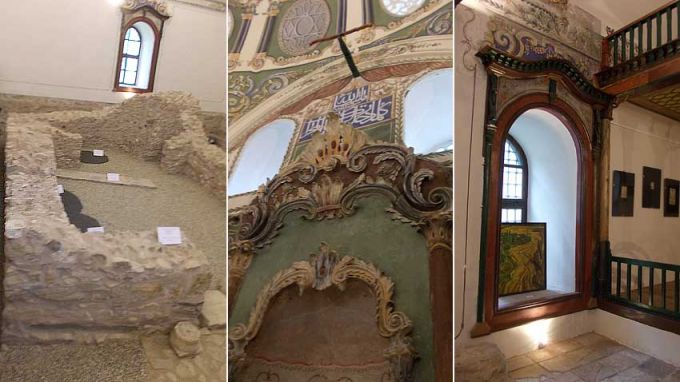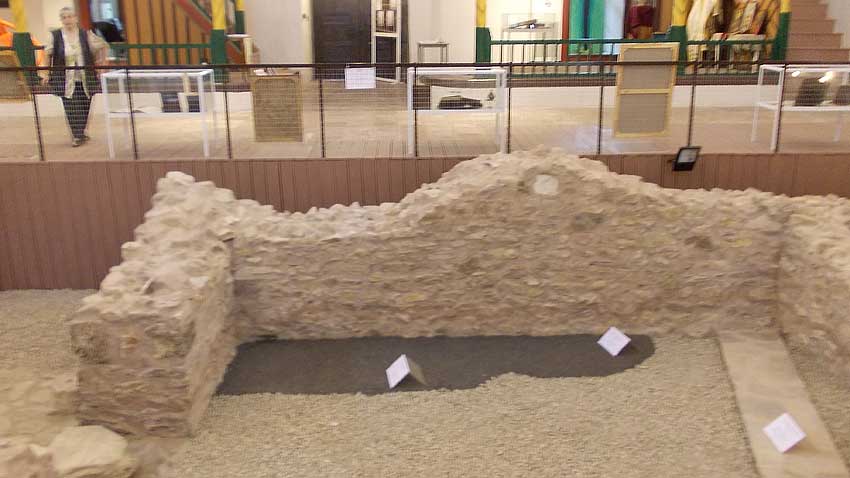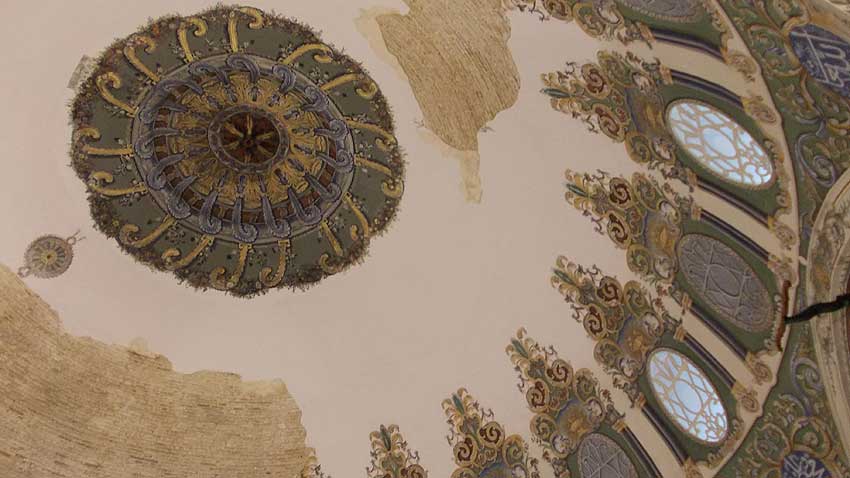 9
9
“Eski Mosque is a remarkable historical site from the age of the Ottoman Empire,” Dr. Angel Dinev, Director of the Regional Museum of History in Stara Zagora says. “The restoration of the historical finds and the frescoes was completed in 2011 under the Operational Programme “Regional Development” and the Eski Mosque Archaeological Museum of Religions Complex opened doors. During some ten years of excavations in the mosque’s house of prayer remains of a medieval Christian church were unearthed, built in the 10th-11th century. Not far from it, the remains of a pagan Thracian sanctuary were found that go back to the 2nd-3rd century. It was a sanctuary where the most eminent of all Thracian deities was revered – the Thracian horseman. Right next to the outer walls there is a ritual pit from the Thracian Early Iron age – pottery has been found there that has been dated to that period. The remains of the sanctuary here prove that this is a place revered by our ancestors for almost two millennia. The museum is truly unique, showing how different cult and religious systems have succeeded one another. Fortunately, the frescoes in the mosque are well preserved. The building itself is big and attracts a great many visitors.”

Dr. Dinev adds a description of a medieval church found within the bounds of the prayer room. The Christian temple is half sunk into what was then ground level, and the space around it was used as a necropolis; some 60 Christian tombs from this burial ground have been studied. According to researchers, the mosque was built over the ruins of the church, by that time pulled down. It is thought that the frescoes inside the early-Ottoman single-dome mosque were painted by Bulgarians – this is evidenced by the colours and some of the patterns. During the restoration of the magnificent dome, experts found some “hidden” Christian elements, woven into the drawings: it can hardly be a coincidence that in one spot, against the blue background there seems to be a little church with a cross on top.

One more intriguing fact from the history of Eski Mosque: after the liberation of Bulgaria from Ottoman rule in 1878, for a long time it was used for Christian rituals – weddings, baptisms etc. At that time it was the only surviving building after the battle on 19 July, 1877 during the Russo-Turkish war; the town was burnt down and literally razed to the ground by the bashi-bazouk hordes and the rampaging troops of Suleyman Pasha. More than 16,000 Bulgarians were slaughtered, according to some sources even more and not a single church was left standing. After the Liberation in 1878, when the survivors returned to rebuild the town from the ashes, the Christian priests had no hesitation to use the mosque for divine services. Dr. Dinev explains: “No documents have come down to us proving that this was ever a church. But people knew –historical memory has preserved the recollection of the existence of the church, built into the foundations of Eski Mosque for generations.”
When some of the churches were restored, the building once again became a Muslim house of prayer and was included in the list of ancient monuments as early as 1927, under the then existing Law of Antiquities. The National Institute of Monuments of Culture declared it an architectural monument in 1972. The frescoes inside the mosque are also a monument of culture of national significance.
English version: Milena Daynova
Photos: Albena Bezovska
The Gala Concert of the National Ballet of El Salvador will take place today at 16.00 in the State Opera House in Stara Zagora as part of the programme of the 54th International Festival of Opera and Ballet Arts . The founder and director of..
The ninth edition of the initiative Poetry in the Metro opens today and lasts until 23 December. The project was initiated by the Polish Cultural Institute in Sofia. It includes poems by 20 European writers. They will be displayed on panels..
Awakener/enlightener - a person who, through his actions, ideas or creative work, awakens the spirit of the people, preserves and spreads national identity, culture and education. In Bulgarian history, this term is most often associated with the period of..
“A story that is worthy of a movie” is what we often say when we hear about some incredible event or an interesting story. It is cinema..
The fourth national Biennial of Illustrations opens today in the triangular tower of Serdica, part of the Regional Museum of History in Sofia. As..

+359 2 9336 661
